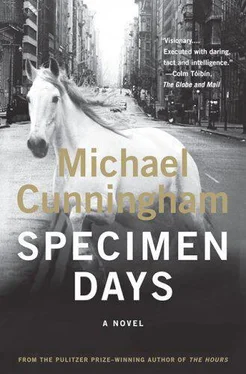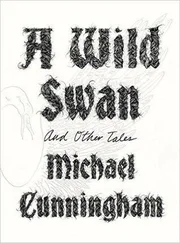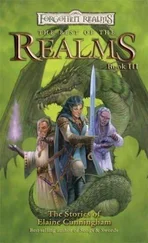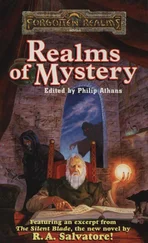Michael Cunningham - Specimen Days
Здесь есть возможность читать онлайн «Michael Cunningham - Specimen Days» — ознакомительный отрывок электронной книги совершенно бесплатно, а после прочтения отрывка купить полную версию. В некоторых случаях можно слушать аудио, скачать через торрент в формате fb2 и присутствует краткое содержание. Город: New York, Год выпуска: 2005, ISBN: 2005, Издательство: Farrar, Straus and Giroux, Жанр: Современная проза, на английском языке. Описание произведения, (предисловие) а так же отзывы посетителей доступны на портале библиотеки ЛибКат.
- Название:Specimen Days
- Автор:
- Издательство:Farrar, Straus and Giroux
- Жанр:
- Год:2005
- Город:New York
- ISBN:0-374-70515-1
- Рейтинг книги:4 / 5. Голосов: 1
-
Избранное:Добавить в избранное
- Отзывы:
-
Ваша оценка:
- 80
- 1
- 2
- 3
- 4
- 5
Specimen Days: краткое содержание, описание и аннотация
Предлагаем к чтению аннотацию, описание, краткое содержание или предисловие (зависит от того, что написал сам автор книги «Specimen Days»). Если вы не нашли необходимую информацию о книге — напишите в комментариях, мы постараемся отыскать её.
Specimen Days — читать онлайн ознакомительный отрывок
Ниже представлен текст книги, разбитый по страницам. Система сохранения места последней прочитанной страницы, позволяет с удобством читать онлайн бесплатно книгу «Specimen Days», без необходимости каждый раз заново искать на чём Вы остановились. Поставьте закладку, и сможете в любой момент перейти на страницу, на которой закончили чтение.
Интервал:
Закладка:
She touched his frail shoulder. He reached up and patted her hand, without taking his eyes from all that was passing by. It was a small gesture, small enough, but it was uncharacteristic. It was the first overture she’d seen him make that was not tentative, that implied the absentminded confidence of a child who’s been loved. He was beginning to respond, to trust her. He was an impossible being, irreparably damaged, and he was a little boy who wanted to see the shells, who wanted to have a dog. He was letting her save him.
He turned to her and smiled. She hadn’t seen him smile before. His smile was crooked, like a jack-o’-lantern’s.
He said, “Now you’re in the family, too.”
His smile was insane. It was gleeful and unabashed and full of a malice so crazy it would feel like joy to him.
The ping went off in Cat’s mind. Here was a killer. Here was the face of true intent.
And now, suddenly, she understood. She had fallen for it.
We need to make it known that nobody is safe. Not a rich man. Not a poor man.
This, then, was the message: no one is safe, not even mothers. Not even the people who are willing to sacrifice everything in the name of love. She and the boy were hurtling toward the day when, with milk on the table and a dog browsing for scraps, her adopted son, her second Luke, the boy she had rescued, would decide that he finally loved her enough to murder her.
She could, of course, give him up. She could call Pete; she could hustle the kid off when the train stopped in Newark. Sure, she’d be in trouble, but she’d survive in ways he wouldn’t. He’d be sucked away into institutions; he’d never be heard from again.
He could always choose to kill her. She could always decide to do away with him.
But for now, she thought, they could go on together. They could put it off from hour to hour and maybe from month to month or year to year. She might still want to be his mother even if it proved fatal. And he might not, after all, be waiting to do it with a bread knife or a pillow as she slept; he might be willing to do it gradually, as children had been doing since time began. In a sense, he had killed her already, hadn’t he? He had ended her life and taken her into this new one, this crazy rebirth, hurtling forward on a train into the vast confusion of the world, its simultaneous and never-ending collapse and regeneration, its rock-hard little promises, its owners and workers, its sanctuaries that never endured, that were never meant to endure.
To die is different from what any one supposes, and luckier.
The child kept smiling his murderous smile. Cat smiled back.
Like Beauty
She might have been beautiful. “Beautiful” was of course an approximation. An earthly term. The nearest word in her language was “keeram,” which more or less meant “better than useful.” It was as close as her people came to a lofty abstraction. The bulk of their vocabulary pertained to weather conditions, threats of various kinds, and that which could be eaten, traded, or burned for fuel.
She was by Earth standards a four-and-a-half-foot-tall lizard with prominent nostrils and eyes slightly smaller than golf balls. But Simon believed she might have been glorious on her own planet. She might have been better than useful there.
He saw her every evening, walking the children through the park. She always came at the same time, just after his shift started. She was modest but certain in her movements. Her skin was emerald. It had a clean gemlike shine rare among the Nadians. Most were mossier-looking. Their skins were more mottled, prone to splotches of ocher and dark brown. This was why people insisted that they were oily and that they smelled. They were not oily. They did not smell. They did not smell bad. All creatures smelled. The Nadian smell was sweet and cleanly fermented. Most people never got close enough to know that.
The children, both blond, appeared to love her. Human children tended to love them, especially the younger ones. She guided her two small blonds along the pathways of the park with competence. She spoke softly to them. She sang intermittently, that low whistling sound they all made, a five-note progression: ee-um-fah-um-so. Were the Nadians affectionate? It was a subject of continuing debate. Did they love human beings, or was it simplicity tinged with desperation? The children didn’t seem to care.
He watched her as she guided them toward his bench. The older one, a boy, probably four, ran ahead. He would find something a stone, a leaf and bring it back to her. He and she would examine it, confer quietly about its worth. The rejects were tossed back. The others she slipped into the pocket of her cape. As soon as a decision had been made, the boy went off in search of a new prize, tireless as a spaniel. This was witnessed with skeptical interest by the little girl, no more than three, who kept herself close to the Nadian. She toyed with the hem of her nanny’s cape. Occasionally she reached up and took hold of the long, thin fingers of an emerald hand. She appeared unconcerned about the two-inch pewter-colored nails.
When the nanny and the children were within earshot, Simon said, “Hey.” He’d been saying hey to her for several days now. It had been incremental: no acknowledgment, then a smile, then a smile and a nod, then a greeting.
Today she responded.
“Bochum,” she said. Her voice was soft. It had that whistle. She sounded like a flute that could speak.
He smiled. By way of response, she dilated her nostrils. The Nadians were not smilers. Their mouths didn’t work that way. Some of the less assimilated still panicked when smiled at. They thought the showing of teeth meant they were about to be eaten.
“What’s he finding?” Simon asked. He inclined his head toward the boy.
“Oh, many thing.” She spoke English, then.
The boy, who had wandered off a little, saw that his nanny was addressing her attention to another. He came running.
“Park’s full of treasures,” Simon said. “People have no idea.”
“Yes.”
The boy inserted himself between Simon and his nanny. He stared at Simon with frank and careless hatred.
The Nadian laid a taloned hand on the miniature blond head. It wasn’t surprising, really, that some people still considered it liberal to the point of recklessness to hire them for child care.
“Tomcruise,” she said, “we show what we find?”
Tomcruise shook his head. The little girl wrapped herself in the folds of the Nadian’s cape.
“Is shy,” she said to Simon.
“Sure he is. Hey, Tomcruise, I’m harmless.”
The Nadian knelt beside the boy. “We show him marble?” she said. “Is nice.”
Tomcruise shook his head again.
“Creelich,” she said to the boy. Her nostrils sucked in like irritated anemones. She must have been forbidden to speak Nadian to the children. Quickly she added, “Come, then.”
She rose. She prepared to walk on with her brood. To Simon she said, “Is shy.”
She was bold. Many of them never dared to converse. Some could not even bring themselves to answer a direct question. If they were silent, if they were as invisible as they could make themselves, misfortune might be averted or at least forestalled.
“What’s your name?” Simon asked.
She hesitated. Her nostrils flared. When a Nadian was unnerved its nostrils expanded and offered a glimpse of green-veined mucous membranes, two circles of inner skin juicy and tender as a lettuce leaf.
“Catareen,” she said. She said it so softly he could barely hear her.
“I’m Simon,” he answered. His voice sounded louder than usual. The Nadians could make you feel large and noisy. The Nadians were darting and indirect. They were quiet as plucked wires.
Читать дальшеИнтервал:
Закладка:
Похожие книги на «Specimen Days»
Представляем Вашему вниманию похожие книги на «Specimen Days» списком для выбора. Мы отобрали схожую по названию и смыслу литературу в надежде предоставить читателям больше вариантов отыскать новые, интересные, ещё непрочитанные произведения.
Обсуждение, отзывы о книге «Specimen Days» и просто собственные мнения читателей. Оставьте ваши комментарии, напишите, что Вы думаете о произведении, его смысле или главных героях. Укажите что конкретно понравилось, а что нет, и почему Вы так считаете.












